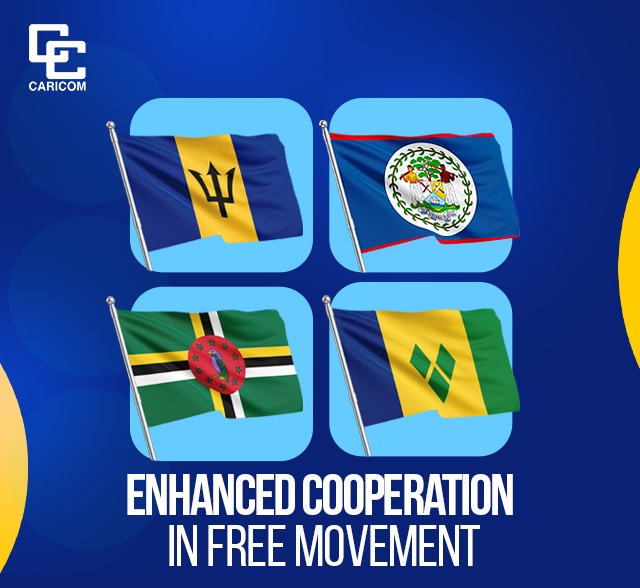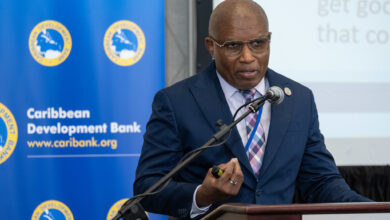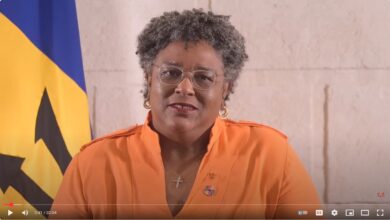Caribbean Community (CARICOM) Member States -Barbados, Belize, Dominica and St. Vincent and the Grenadines- will implement full Free Movement of their nationals among themselves from Wednesday, 1 October 2025.
This means that nationals of these four countries will not be limited to temporary entry of up to six months, or to work under the CARICOM skills regime. Nationals from these four countries will be able to travel to any of these four countries to reside, work and remain indefinitely, with the right to access emergency and primary health care as well as public primary and secondary education for their children.
The decision by the four Member States to implement full Free Movement ahead of the other Member States, was approved by CARICOM Heads of Government during their meeting in July 2025. This arrangement falls under the Enhanced Cooperation Protocol to the Revised Treaty of Chaguaramas which provides for groups of at least three CARICOM Member States to pursue deeper regional integration efforts among themselves, with the option for other Member States to join later.
Extensive Preparations Undertaken
The four Member States have been meeting to finalize common approaches and have confirmed that the necessary arrangements are in place to support the full free movement of their nationals among the four Member States as of 1 October 2025. Extensive preparations have been undertaken to ensure a smooth and secure rollout of full Free Movement among these four Member States. These include:
- Indefinite Stay at Entry: Nationals of the four participating Member States will receive a stamp or digital record of indefinite stay on arrival.
- Registration: Systems have been established to allow for registration of incoming nationals, enabling access to services such as education and healthcare, and allowing national agencies to plan for any increased demand.
- Security and Health Safeguards: Effective oversight measures are in place to ensure that individuals who pose a threat to national security, public health, or would become a cost to the public are either denied entry or subject to removal. These measures will be supported by the CARICOM Implementation Agency for Crime and Security (IMPACS) which coordinates Member States security cooperation and administers the Advanced Passenger Information System (APIS), which mandates submission of passenger data before travel.
- Complaints Mechanism: Nationals who experience difficulties at ports of entry or after entry may use the CARICOM Complaints Procedure, which is already operational under the CSME. Forms are available at all ports of entry, and complaints will be reviewed within two weeks, with investigations completed within eight weeks, where necessary.
With systems in place and preparations complete, the four countries are ready to manage the new Free Movement arrangements effectively in the best interest of their citizens and the wider Region.
Existing Regime Remains for Other Member States
The other Member States that participate in the CSME and have not signed on to full free movement will continue to facilitate movement of their nationals under the existing regime for skilled workers, for the provision of services and the operation of businesses.






